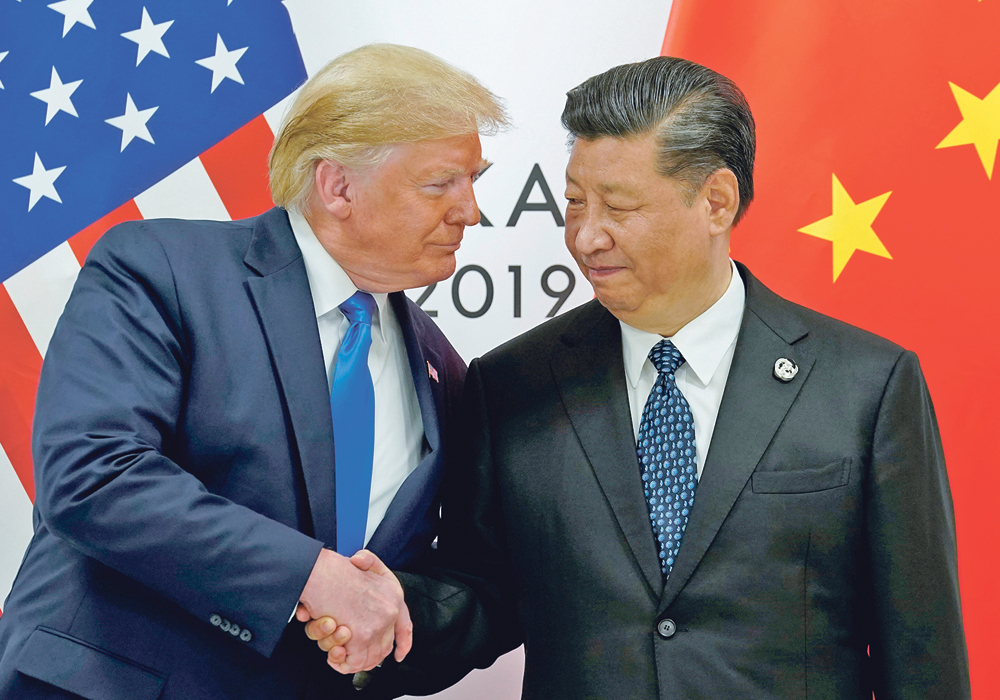China’s treatment of Canadian food imports following Meng Wanzhou’s detention is seen as an example of geopolitics
Geopolitics is rearing its head once again, shaping the international landscape, Jason Shapiro said Nov. 27 at the Grain World conference in Saskatoon.
Shapiro, who is director of analysis for Geopolitical Futures, said geopolitics, in which policy making becomes heavily dependent on geographic location, held great sway on world affairs from the start of the 20th century to the end of the Cold War in the 1990s. During the following years, western nations had hopes that liberal democracies would pop up throughout the globe, but such were dashed following the 9-11 terrorist attacks.
Read Also

New program aims to support plant-based exports to Asia
Understanding the preferences of consumers in Taiwan and how they differ from Indonesia or Malaysia isn’t easy for a small company in Saskatchewan.
“The United States, as it does, completely overreacts to 9-11. The United States really has trouble functioning in the world when it doesn’t have an enemy that it can focus on. Jihadism was just the perfect enemy,” he said during the lead-off forum at Grain World.
A few years later, Russia re-imposed itself on the global stage with its invasion of Georgia, an independent country that had been one of the republics of the former Soviet Union. Shapiro said Russia’s aggression clearly demonstrated how unwilling the U.S. was to defend Georgia. That played into the hands of Russian President Vladimir Putin and his long-term goal of destabilizing relations between the U.S. and its allies.
Later came the rise of Chinese President Xi Jinping.
“China has had really three world historical figures in its last 100 years. The first was Mao Zedong — he reunited China. The second was Deng Xiaoping — he made China rich. Xi Jinping is here to make China strong,” Shapiro said.
He said that when Xi met U.S. President Donald Trump in Florida, Trump told Xi how trade relations between their countries were going to operate. With the legacy of Mao and Deng deeply engrained in Xi’s psyche, he would have compared Trump’s bluster to how China was destabilized and carved up, first by the United Kingdom and then other imperial powers for the 100 years that followed. With that in mind, Xi was determined not to permit such a history to repeat itself, said Shapiro.
“There may be a cosmetic short-term trade deal in the offing, but the United States and China are locked in a long-term strategic competition. The U.S. isn’t going to give up on it. China isn’t going to give up on it. Their trade war is just the beginning. There’s no end to this really in sight.”
China’s economic and political growth over the last 40 years has brought significant consequences as well, Shapiro said. China was once a country that didn’t need to import oil, being completely self-sufficient. Today, it’s the world’s largest importer of oil.
The case has been the same for food, which has led China to refocus its policy. Rather than striving for food self-sufficiency, China opted to exercise its might toward food security, as demonstrated by China’s reaction to Canada’s arrest of Huawei executive Meng Wanzhou about a year ago, Shapiro said.
China imprisoned two Canadians and banned key Canadian products from its market in retaliation.
“For China this is geopolitical, this isn’t import/export. China identified you were an unreliable political partner and went forward accordingly,” he stated.
Shapiro said “it would be a colossal mistake” for a country or a business to have China at the centre of its future growth strategy.
“China, and access specifically to the Chinese market, should not be the core of your business. You need to get used to the thinking of what you can sell to China as a bonus, not as the core of what you’re doing,” Shapiro said.
Countries and businesses should turn to India, which Shapiro believes will explode on the world scene similar to how China did during the 1980s. However, he warned not to treat India as an unequal partner, as Trump was said to have done to Indian Prime Minister Narendra Modi during his recent visit to Texas.
Shapiro said agreements need to be mutually beneficial and not one-sided.


















